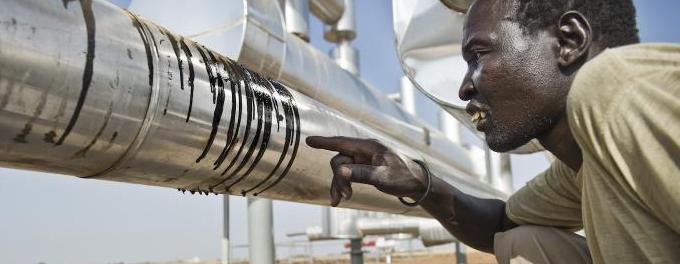
Community leaders in Bentiu, Unity State, are demanding transparent and clear management of the 3% of oil revenue share meant for local development as stipulated in the Petroleum Act.
This demand was made during a one-day training session on sustainable natural resources management, organized by the Civil Society Coalition on Natural Resources (CSCNR).
Speaking at the event, Kom Mathew, a community leader from Mayom County, decried the lack of transparency and fairness in how resources are distributed in Unity State.
“The 3% net petroleum revenue provided for by the Petroleum Revenue Management Act 2013 is a lot of money. The state needs good schools, hospitals, roads and clean drinking water. If this money is to flow to the Community Development Committee (CDC), distributed equitably according to the law, managed transparently and accountably, Unity State can be one of the most developed states in the country,” he said.
However, Kom noted that tangible developments have not been seen in the seven counties of Unity State, and he urged for reforms to ensure communities benefit from local resources.
“We, the communities, are demanding reforms so that we can benefit from the resources in our state,” Kom added.
Meanwhile, the Programme Officer ofcivil society coalition onnatural resources (CSCNR), Gizam Moses, said the coalition organised the training to equip grassroots leaders with relevant knowledge and skills for proactive lobbying and advocacy towards strengthening engagements between the government, corporate entities and the communities.
“It is the right of the people of this state to benefit from the exploitation of natural resources in their localities,” Moses stated. “They have inherent rights to a toxin-free environment, corporate social responsibility, and community-driven development as outlined in the Petroleum Revenue Management Act of 2013.”
Moses emphasized that these rights cannot be fulfilled if oil production and revenue distribution violate legal frameworks. He also reaffirmed CSCNR’s commitment to advocacy and oversight.
“CSCNR shall continue to engage with the government of Unity State on the formation and functionality of Community Development Committees (CDCs) in all counties,” he said. “This is to ensure that CDC funds are directed to service delivery and development for the people of this state.”
South Sudan’s Petroleum Revenue Management Act of 2013 mandates that 3% of the money earned from selling oil in a particular area must go directly back to the communities living there.
This money, to be managed by Community Development Committees (CDCs), would be used for building schools, hospitals, roads, and providing clean drinking water for people who live near the oil fields, and whose land is impacted by oil production.
However, community leaders have complained that they have not received or seen the share of the money.

